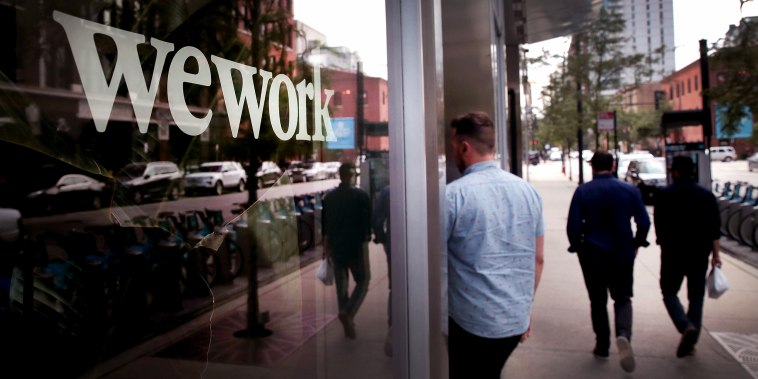WeWork, an office sharing company based in the US, has filed for bankruptcy protection after it failed to secure a much-needed $3 billion bailout from its Japanese investor SoftBank. The company, once valued at $47 billion, has long suffered from a troubled reputation that has seen it struggle to make a name for itself in the competitive office sharing industry.
Established in 2010, WeWork had a meteoric rise, quickly becoming one of the most famous startups in the world. It grew from just a handful of offices to hundreds of properties across the globe. However, the company’s rapid expansion came at a cost, and it soon became clear that its business model was not as sustainable as initially thought. WeWork’s mismanagement, particularly of its finances, led to mounting losses and a series of missteps, resulting in a failed attempt to go public earlier this year.
The writing seemed to be on the wall last month when SoftBank, the company’s biggest investor, announced that it had abandoned its $3 billion bailout plans. The news sent WeWork’s stock into a nosedive, coupled with an unprecedented wave of staff layoffs. It left WeWork with little choice but to resort to bankruptcy protection in order to secure a lifeline and reorganize its finances.
The future of WeWork now hangs in the balance. Despite boasting a $47 billion valuation last year, the office sharing company now finds itself teetering on the brink of bankruptcy. As it stands, WeWork is still operating, though it is unclear how long its current state of limbo will last or what the ultimate outcome may be.
It appears that the gloried past of WeWork is fading fast, putting an end to the rapid rise of one of the world’s most famous startups. It remains to be seen what the next chapter of WeWork will look like, but it is clear that the company’s problems cannot be solved overnight. Whether it will be able to turn itself around or be forced to liquidate is yet to be seen.
